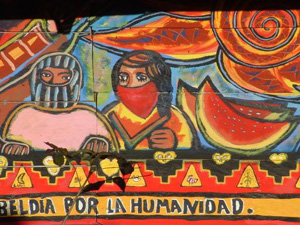
One criticism of Marxism is that the working class has either disappeared or that the working class is no longer immiserated. Marcuse argued that neither was true but that the working class had bought, or tricked, into 'false consciousnesses'. I'm not entirely at odds with Marcuse assertion here but I wouldn't defend it either. The fact remains that millions of workers have not bought into the false consciousnesses of 'bourgeois' society. These millions of workers, workers who still speak in terms of liberation & anti-capitalism [anti-globalization, workers' rights, etc.], exist outside the mainstream of bourgeois society — students, service workers, urban unemployed, Latino migrant farmers, Blacks in Europe & the Americas, Arabs in Europe, rural Chinese workers, indigenous Americans, oil workers in Nigeria, etc.

Here the continuing relevance Marx's rears it head. Marxism is a set of theoretical tools for understanding human development and for creating a revolutionary project of human emancipation. Every generation or so produces a group of thinkers with an authentic understanding of this project — Rosa Luxemburg & 1918-19 revolutionaries, the Situationists in '68, Huey P. Newton & the Black Panthers, the Zapatistas, etc. Marxism has inspired the creation of open spaces where the oppressed of the world can actively engage the world. In this sense, Marxism has allowed, or rather understood, the working class to play a redemptive role in world history. Whether it be autogestion in Argentina, breakfast programs in Black America, or collective organic farming in Cuba the working class has met the challenges of the world.

